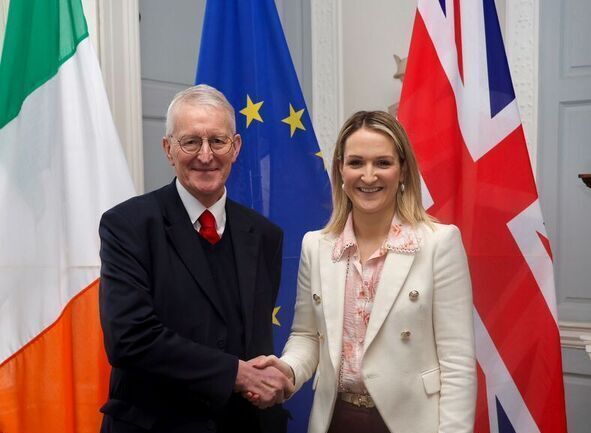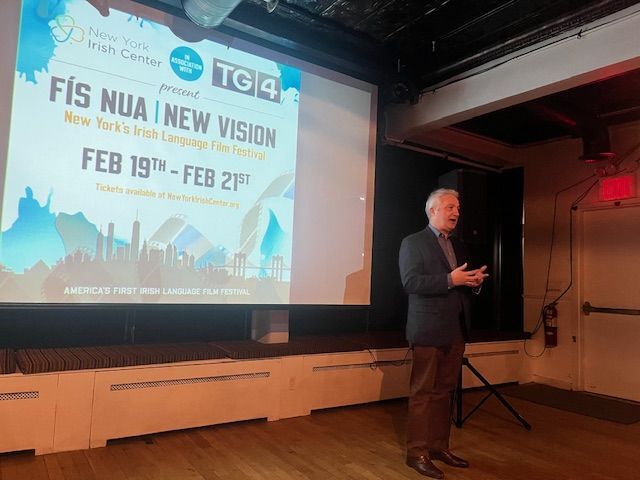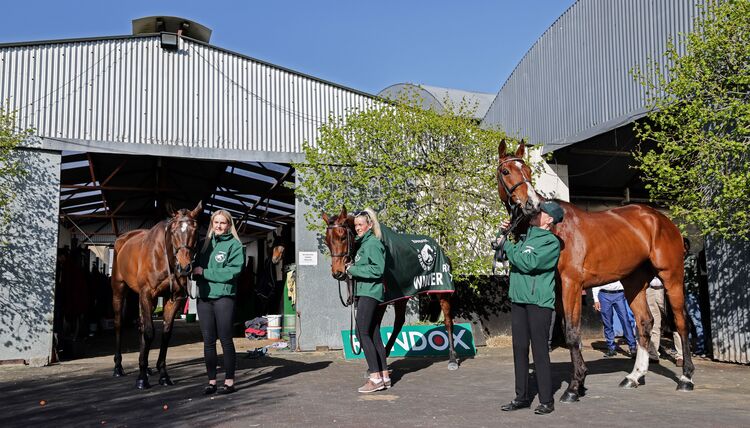By Maura Mulligan
When he thinks he’s alone and calls her name, she goes to his side. She takes his arm and helps him up when he falls. She can’t always lift him and sometimes has to call the neighbors for help. She won’t consider a care home because like Margaret in the song “The Dutchman,” Bridie loves Séamus and wants to take care of him herself.
One could say that my brother-in-law’s dementia has nothing to do with the Covid virus, but it does. If he were to be cared for in a facility for dementia patients, no one, not even Bridie, would be allowed to visit. The option of visits that require communicating through a window is not for her.
In the 1960s Bridie met Séamus in London. They fell in love, married and raised a family there. Tomorrow, Oct. 8, 2020, they will celebrate 55 years of marriage. Bridie remembers when they were young. She remembers cheering for him when he passed his test to become a London taxi driver and he aced “The Knowledge,” which is what London cabbies have to study to get their taxi driver license.
Jody Rosen, in a the New York Times article of Nov. 10, 2014, stated, “’The Knowledge’ is without question a unique intellectual, psychological and physical ordeal, demanding unnumbered thousands of hours of immersive study, as would-be cabbies undertake the task of committing to memory the entirety of London, and demonstrating that mastery through a progressively more difficult sequence of oral examinations — a process which, on average, takes four years to complete.”

Their daughter Caroline giving her dad a "lockdown haircut."
To pass “The Knowledge” they must know: “housing estates; parks and open spaces; government offices and departments; financial and commercial centers; diplomatic premises; town halls; registry offices; hospitals; hotels; clubs; theatres; cinemas; museums; art galleries and more."
Bridie remembers helping Séamus with the “call-over” - a practice of memorizing a route to demonstrate just how many turns a London cabbie must take to get from Point A to Point B.
In his article, Rosen states further that, “the posterior hippocampus, the area of the brain known to be important for memory, is bigger in London taxi drivers than in most people.” Why, then, did my brother-in-law contract this disease, I want to know? There are several types of dementia and it turns out that Séamus’s is genetic, Bridie told me. Other members of his family have also suffered from it.
Some years ago, when Séamus’ memory became less sharp, he had to change jobs. Gradually, his awareness and memory decreased. One day when he needed a haircut and had trouble locating the barbershop at the end of their street, Bridie understood that his situation would not improve. In preparing herself for rougher roads ahead, she decided not to opt for a care home and losing the love of her life sooner rather than later. My sister now has a hospital bed in the living room and around-the-clock visiting health-care workers. Like the characters in the song, ”The Dutchman” Bridie and Séamus’s story is one of unconditional love.
Líam Clancy’s singing of “The Dutchman” composed by Michael Peter Smith keeps playing over and over in my head. “Sometimes the Dutchman thinks that he’s in Rotterdam.” And when Seamus heard a motor noise last week, he thought he was approaching Shannon airport. He told Bridie that their friend Líam, would soon be there to meet them. Maybe they’ll go for a pint in O’Neill’s pub, he suggested.
I believe there are steps one can take to help combat dementia’s attack especially in these strange times when people are prone to sit for long periods of time watching television. I read that doing regular physical activity is one of the best ways to reduce one’s risk of dementia. It’s good for your heart, circulation, weight and mental wellbeing. The online Alzheimer’s Society “United Against Dementia” states that it’s important to find a way of exercising that works for you. “You might find it helpful to start off with a small amount of activity and build it up gradually. Even 10 minutes at a time is good for you,” the article states.

I wanted to visit Bridie and Séamus this past summer and personally thank my brother-in-law for all the ways he made my London family visits enjoyable over the years. But spending two weeks in quarantine is not a good idea for me at this point. I’ve settled for What’s App to express my love and remind Séamus of the time he told me how many yards I had to walk to get from the Leicester Square Underground station to the Noel Coward Theater on St. Martin’s Lane when I wanted to see Martin McDonagh’s “The Cripple of Inishmaan.” He was unable to focus when I went on at length but I was grateful that he recognized me on the video call.I remember the time I wanted to see Brian Friel’s “Translations” at the National Theater, hetold me it was a 5-minute walk from the Waterloo tube station. I can’t recall if I had to turn right or left but if I did, he told me that too. I always felt confident that I wouldn’t get lost in London after getting directions from Séamus.
As they celebrate the 55 years of their marriage, Séamus will forget some of their life together, but like Margaret in the “The Dutchman,” Bridie will remember it all for him.
Maura Mulligan is author of the memoir, “Call of the Lark.”









